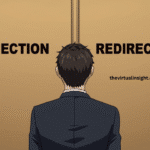There’s a particular kind of “meh” that settles in your chest like unseasoned soup. It’s not full-blown dissatisfaction or misery, it’s just… flat. You sit at your desk, do the work, maybe even do it well, but something feels off. You’re not unhappy, but you’re also not lit up. It’s that quiet whisper that says, “You don’t belong here anymore,” but it never raises its voice.
I’ve felt that “meh” before. I didn’t recognise it at first because I had grown used to the rhythm of that role. The daily tasks were second nature, most of my coworkers were nice, and my pay cheque wasn’t bad. But something had changed. Not overnight, but gradually. Like how you don’t notice you’ve outgrown a pair of shoes until they start pinching your toes. That job, once full of possibility and challenge, had become too small for me.
Maybe you’ve been there too, or maybe you’re standing right in the middle of it now. Let’s talk about the subtle, sometimes sneaky signs that you’ve outgrown your role, even if everything looks fine on paper.
You’re No Longer Challenged
There was a time when this job felt like a thrilling uphill climb. Every task was an opportunity to prove yourself. You had to think fast, learn new tools, find your rhythm, and navigate unfamiliar territory. Your brain was constantly engaged, your curiosity piqued. Even the tough days left you with a sense of accomplishment because you were growing through them.
But now? You breeze through the motions like a well-oiled machine. The emails, the meetings, and the routine no longer demand anything new from you. You already know how to solve the problems before they even arrive. You can predict the day’s pace, the questions that will come your way, and the way it will all wrap up before lunchtime. At first, that kind of ease can feel like the dream. No stress, no fumbling. Just smooth sailing. But too much smooth sailing starts to feel like drifting and eventually, like sinking.
That loss of challenge doesn’t necessarily mean your job isn’t valuable. The work might still matter, and you might still be doing it well. But growth is about more than doing a job well, it’s about evolving while you do it. When your role stops asking more of you, when it stops making room for you to stretch, take risks, or expand your skillset, it quietly starts to shrink around you.
And that low hum of dissatisfaction you feel each morning, before you even log in? That’s not laziness or entitlement. That’s your potential tapping gently on the glass, asking for more room to breathe. It’s your inner self: your dreams, your unused talents, your deeper aspirations are begging for stimulation, for purpose, for space to try something different.
It’s not that you can’t do the work anymore, it’s that it no longer requires the best version of you to show up and that’s when you know: the role that once grew you has now become a box that contains you.
Your Learning Curve Has Plateaued
One thing I’ve learnt in my career is that growth isn’t always about climbing a ladder. Sometimes, it’s about expanding your mind. Learning a new tool. Handling a difficult project. Seeing things from a different lens. It’s in the small wins, the eureka moments, the uncomfortable stretches that make you smarter, sharper, and more self-aware.
But if you pause for a moment and reflect on the last six months, and you can’t pinpoint a single new skill you’ve picked up, a fresh perspective you’ve gained, or a meaningful challenge you’ve overcome, something might be off. Learning doesn’t have to be dramatic to be valuable, but it should be present. When the work becomes so routine that it no longer requires you to think differently, you slowly stop evolving without even realizing it.
We tend to outgrow roles when they stop feeding our curiosity. That spark, that hunger to understand more, to stretch beyond what you already know, that’s the fuel of long-term fulfillment. And when that fuel runs low, you start to feel it. Especially if you’ve become the go-to person on your team, the one others rely on for answers, while you have no one or nothing challenging you to rise further. It’s a strange imbalance, being the expert in a space that no longer excites or educates you.
The tricky part is, stagnation is not always loud. It doesn’t knock on your door and announce itself. Sometimes it just seeps in quietly, disguised as comfort. You’re no longer anxious, but you’re not inspired either. The routine feels familiar, but it’s no longer fulfilling. And that’s the danger of a flat learning curve, it keeps you busy while quietly dulling your edge
You’re Disengaged
Let’s get this clear from the start: feeling disengaged doesn’t mean you’ve become lazy. Laziness is when you stop trying altogether. But you? You’re still showing up, ticking the boxes, getting things done. You haven’t dropped the ball, you’re just no longer emotionally invested in the game. The passion that once fueled your work has dulled, and now you find yourself coasting instead of thriving.
There was a time when small wins felt like big victories. A compliment from your boss made your day. Finishing a tough project came with that satisfying rush. But lately, all of it just feels…meh. The highs don’t hit like they used to. Even feedback that once motivated you now barely registers. You’re not checked out entirely, you’re just doing the minimum to stay afloat, not because you don’t care at all, but because something inside has quietly disengaged.
It’s a bit like being in a relationship where everything looks fine on the surface. You’re still texting good morning, still having dinner together, still saying “I love you.” But the spark? Gone. You’re both just going through the motions, and deep down, you feel it. That’s what disengagement at work feels like. Not laziness. Just a quiet disconnect; a sign that you may have outgrown what once felt right.
You Daydream A Lot
I’m a firm believer that daydreaming isn’t always a bad thing. It’s where ideas are born, where possibilities take shape. But if you find yourself spending more time thinking about doing something else than actually doing your job, your mind might be telling you what your mouth hasn’t yet.
You fantasise about starting that side hustle, going back to school, applying for that dream job, or even just doing something different. You stare out the window or scroll endlessly on LinkedIn during lunch breaks, not out of habit but out of hunger. Your thoughts are already in the next room, even though your body is still here.
You Feel Underutilized
This one stings a little. Because being underutilised often means your role has stopped seeing the full version of you. You’ve got skills; real ones. You’re creative, strategic, emotionally intelligent, and adaptable. But your job? It only taps into a tiny part of what you’re capable of. You end up doing tasks that don’t stretch you, projects that don’t excite you, and meetings that leave you wondering why you were even there.
It’s frustrating to feel like you’re being underused, especially when you know there’s so much more you could bring to the table. You’re ready to step up, ready to contribute in ways that would not only benefit the company but also satisfy your own desire for growth. But the problem is, the table’s not set up to accommodate you. It’s like being stuck in a box that doesn’t fit your potential and it’s painful.
The nagging feeling of “I can do more than this” is often the loudest indicator that you’ve outgrown your current role. It’s a sign that your skills are craving a challenge and that it might be time to find a position where you’re truly utilized and appreciated.
You’re Not Excited About Growth Within the Company
One of the most surprising realizations someone can have when nearing the end of their time in a role is that they simply aren’t excited about what comes next within the company. They might find that they aren’t motivated by the idea of climbing the corporate ladder. There’s no desire to move into the manager’s position, and they don’t look up to anyone in leadership with the aspiration to follow in their footsteps. The company’s vision for future growth just does not excite them, it’s not the path they envision for themselves.
This shift isn’t about arrogance or believing they are above it all. It’s about clarity. They’ve gained enough insight into who they are becoming professionally to recognize that the company’s version of growth doesn’t align with their own. The company’s vision for success doesn’t resonate with their personal ambitions, values, or the professional they aspire to be. It’s not a judgement of the company’s goals, it’s simply a recognition that their paths have diverged.
Sometimes, outgrowing a role doesn’t just mean outgrowing the tasks or responsibilities, it can also mean outgrowing the company itself. And that’s okay. It’s an important part of professional growth to recognize when one’s future no longer aligns with the direction of the company. It doesn’t mean the experience wasn’t valuable or that they didn’t learn a lot, it just means their journey is leading them elsewhere.

You Feel Emotionally Drained After Work (Not Just Tired)
All jobs can be tiring, especially when things are hectic. But there’s a different kind of tiredness that comes when you’re misaligned with your work. It’s not just physical fatigue; it’s emotional. You close your laptop and sigh, not because it was a tough day, but because it was a pointless one. You don’t feel like you made an impact. You don’t feel seen. You don’t feel inspired.
That kind of tiredness isn’t sustainable. It chips away at your motivation, your confidence, even your mental health. If your job constantly drains you instead of energising you, that’s a red flag.
You Crave a New Identity
You start to introduce yourself differently. It’s not about pretending to be someone you’re not, but more about exploring the possibilities of who you could become. You might say something like, “I’m currently in [your role], but I’m exploring project management,” or “I handle admin work for now, but I’m really interested in digital strategy.” These are more than just casual statements, they’re expressions of a shift happening inside you.
You’re experimenting with new labels, titles, and versions of yourself because you’re beginning to realize that who you are today might not be who you want to be tomorrow. This is not random, it’s a sign that growth is pushing you to find a new path, a new identity that aligns with where you’re headed.
You find yourself diving into new fields, reading books and articles about industries you hadn’t considered before. You binge podcasts that open your eyes to new ideas and career paths. Maybe you even start side projects or take free courses during your downtime, eager to explore new skills and knowledge. It’s not about trying to escape your current role, it’s about running toward something that fits better, something that excites you, challenges you, and allows you to step into a new version of yourself that feels more aligned with your true potential.
You Start Asking Bigger Questions
The questions start to sneak in when you least expect it, during your morning commute, after a Zoom call, or even while folding laundry. They’re simple yet profound: “Is this really what I want to be doing five years from now?” “Am I still proud of the work I do?” “What kind of life am I building through this job?”
These questions don’t always come with quick or clear answers, but the fact that you’re asking them is telling. It’s a sign that your mind and your soul are yearning for more than what your current role offers. You’re no longer content with just going through the motions. You’re seeking alignment, searching for deeper meaning and purpose in your work, and looking for more authenticity in how you spend your time. It’s not just about doing a job, it’s about building a life that reflects who you are and what you truly value.
So, What Next?
Recognising that you’ve outgrown your role can be scary. There’s the fear of the unknown, the guilt of leaving behind something stable, and sometimes even the doubt about whether you’re “being ungrateful.” I’ve wrestled with all those emotions. But here’s what I’ve learnt: staying small for the sake of comfort never leads to fulfilment. Growth always requires a little discomfort, a little risk.
Outgrowing a role isn’t failure. It’s a beautiful sign that you’ve evolved. That your capacities have expanded. That you’ve learnt everything this season had to teach you. And now, it’s time to move forward not because your current job is beneath you, but because you’ve simply become more.
Whether that means having a conversation with your manager, seeking internal transfers, updating your CV, or just quietly exploring what else is out there, take one step. Just one. Trust the “meh.” It’s not just boredom, it’s wisdom. It’s your soul knocking, saying, “Hey, we’re ready for more.”
Don’t ignore that knock. Answer it. You might just find that the life waiting on the other side of your next “yes” is the one you’ve been dreaming about all along.
Stay frosty!




